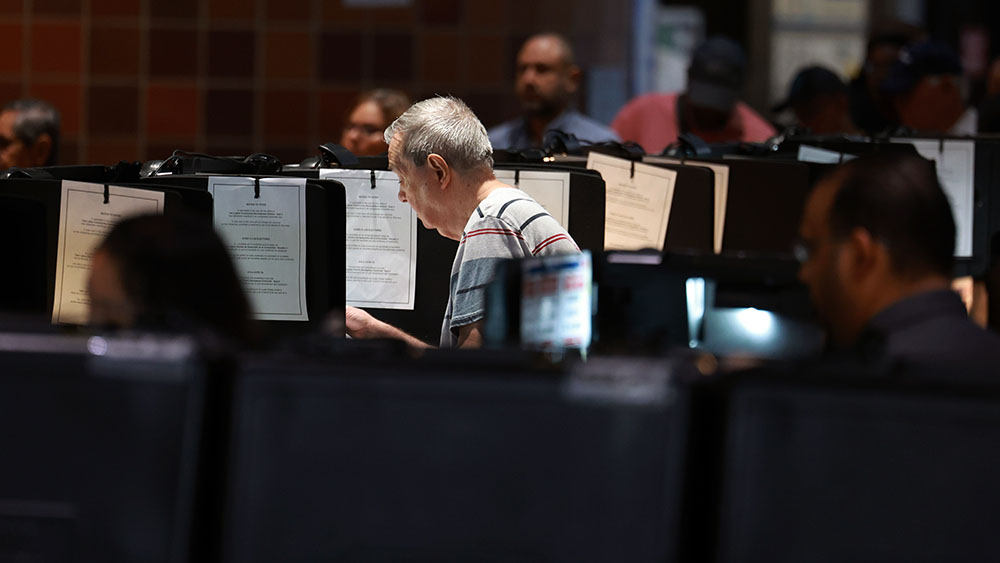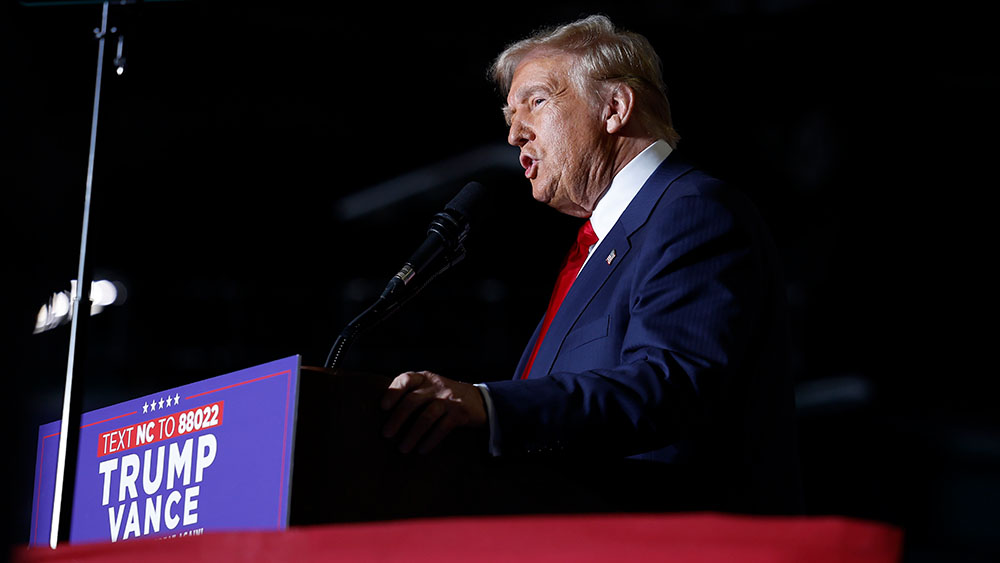DEBT BOMB: Federal government borrowed $255 BILLION in October
11/13/2024 / By Ava Grace

The latest report from the nonpartisan Congressional Budget Office notes that the government of the United States borrowed $255 billion in October.
The federal government’s massive borrowing and budget deficits are expected to strain the prospects of President-elect Donald Trump quickly turning around the U.S. economy and affect the country’s competitiveness in global markets.
“There’s a fiscal storm on the horizon, and President-Elect Trump and the Members of the 119th Congress will soon need to confront it. With a deficit of $255 billion in just the first month of the fiscal year and borrowing $8 billion per day, this should be a reminder that our borrowing isn’t letting up on its own,” said Maya MacGuineas, president of the think tank the Committee for a Responsible Federal Budget.
“What remains consistent is the massive underlying burden of our national debt. In the next two years, debt will exceed its all-time record share of the economy; in less than ten years, Social Security beneficiaries face automatic benefit cuts if policymakers continue to do nothing to fix it.”
Concerns over the economy, government spending and rising debt to hound incoming Trump administration
The agreement regarding the federal debt ceiling expires on Jan. 2, weeks before Trump is re-inaugurated. The ceiling was suspended in 2023 following protracted negotiations in a divided Congress.
Fiscal experts see an even earlier fiscal test could come in December, as temporary funding measures adopted to avoid a government shutdown will keep government agencies funded until Dec. 20. This could set the stage for a political battle even before the new Congress takes office, said Richard Francis, a senior director at Fitch Ratings, speaking before the election results.
Republicans have taken back control of the Senate, and they are expected to hold on to the House of Representatives. With a government trifecta and a mandate to govern, Trump is expected to take the lead in dealing with the major economic and financial issues affecting the United States.
Barring a quick resolution, the outgoing Department of the Treasury will be forced to use its cash reserves and other so-called extraordinary measures to keep the government funded until the new administration and the new Congress take over. These emergency measures could keep the government stable only until the second half of 2025, at the latest.
MacGuineas noted that the fight ahead for Trump is expected to be difficult, with roadblocks and “incredible temptations” to keep government spending at current levels as “powerful interests” in Washington, D.C. push policies “designed to fulfill agendas” that do not address the nation’s debt.
“But these are ultimately generational challenges affecting you and I as well as our children and grandchildren,” she said. “Tackling the upcoming negotiations over raising the debt ceiling and extending expiring tax provisions isn’t an obstacle; it’s an opportunity to finally get this nation moving in the direction of a responsible federal budget.”
Learn more about the state of government spending and the budget at NationalDebt.news.
Watch this discussion on Trump’s economic proposals, including possible changes to the federal income tax.
This video is from the InfoWars channel on Brighteon.com.
More related stories:
America’s current economic problems pose a big challenge for the next president (Trump).
REPORT: About 70% of counties in battleground states now depend on government aid programs.
Sources include:
Submit a correction >>
Tagged Under:
big government, Bubble, budget deficit, Collapse, debt bomb, debt collapse, Donald Trump, economic policies, economy, finance riot, government budget, government debt, government deficit, government spending, insanity, money supply, national debt, risk, White House
This article may contain statements that reflect the opinion of the author
RECENT NEWS & ARTICLES
COPYRIGHT © 2017 RISK NEWS




















